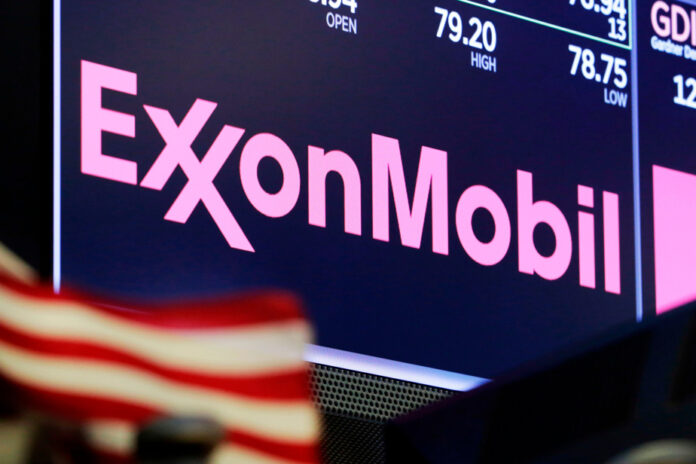(New York) The American oil and gas giant ExxonMobil suffered in the second quarter a sharp drop in its results, like its competitors, in the wake of the fall in the price of hydrocarbons but also of margins cut in the refining.
Its net profit plunged 56% to $7.9 billion in the second quarter.
Revenue also shrank, to $82.91 billion between April and June, from $115.68 billion in the same period of 2022.
His compatriot Chevron also announced a sharp decline in its quarterly performance on Friday, as did the British giants Shell and French TotalEnergies the day before.
A barrel of Brent oil from the North Sea sold for an average of 78.1 dollars in the second quarter, far from the almost 114 dollars on average at the same time of 2022.
Reported per share and excluding exceptional items – benchmark data for analysts – ExxonMobil’s net profit came to 1.94 dollars against 4.21 dollars a year earlier.
This is below analysts’ expectations for this line of accounts ($2.01 discounted), but revenue is better than expected.
“The work we’ve done to improve our underlying profitability is reflected in our second quarter results, which doubled what we earned in a comparable commodity price environment five years ago,” said commented Darren Woods, boss of the group, quoted in a press release.
The giant made record profits in 2022 thanks to the jump in the price of hydrocarbons linked to the recovery in demand and a reduction in supplies in Russia with the war in Ukraine.
US oil prices hit a three-month closing high of $81.07 a week ago, amid pledges from Saudi Arabia and Russia to cut volumes.
But, ExxonMobil noted, a decline in natural gas prices (-40% it said) and lower margins in the refining business “negatively impacted results” in the second quarter, to the tune of nearly $4 billion. of dollars.
Larger-than-expected seasonal maintenance operations also weighed on business.
The giant also indicated that production in the Permian basin, straddling Texas and New Mexico, and in Guyana had increased by 20% over one year.
Total production reached 3.7 million barrels of oil equivalent per day (boed).
With the sale of assets and exit from its Sakhalin-1 oil field in Russia, net production increased by just 160,000 boed.
ExxonMobil said it remains on track to meet its savings target of $9 billion by the end of 2023, compared to 2019. It has already achieved $8.3 billion.
The group has returned to its plan to buy Denbury, an American company specializing in CO2 capture valued at $4.9 billion, announced on July 13.
It aims to strengthen its Low Carbon Solutions branch by offering industry on the Gulf Coast of Mexico a capacity to reduce 100 million tonnes of CO2.
It has also concluded an agreement with the American steelmaker Nucor to take charge of up to 800,000 tonnes per year of emissions from its Convent site in Louisiana (southeastern United States) from 2026.
This transaction brings to 5 million tons per year the capacity that ExxonMobil has committed to process for third parties, which is “equivalent to replacing approximately two million combustion cars with electric vehicles”.
Its stock was nearly flat (-0.17% to $105.24) in trading prior to the opening of the New York Stock Exchange.















